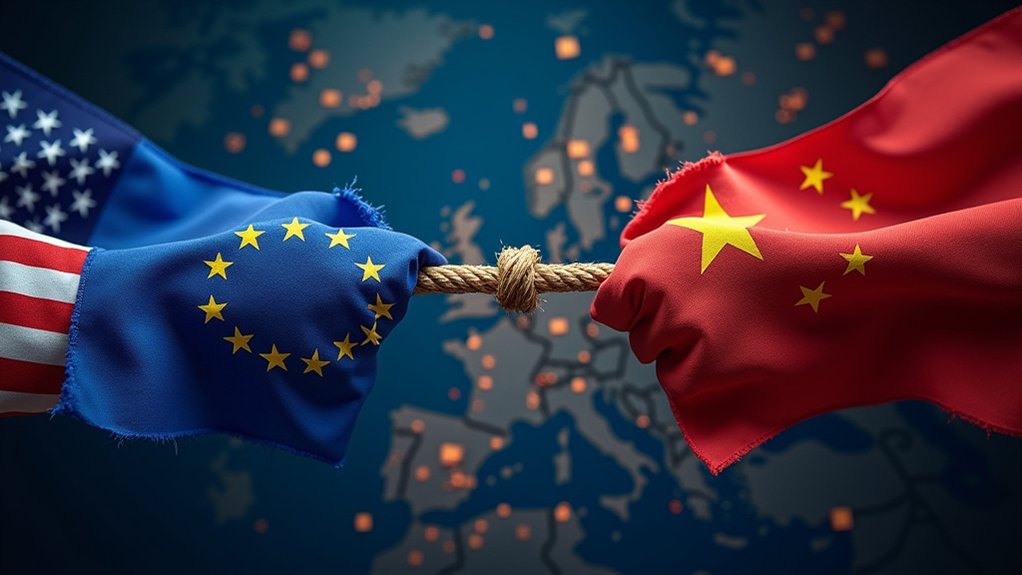While the United States and China duke it out for tech supremacy, Europe finds itself in an increasingly uncomfortable spot—caught between its American security ally and its Chinese trading partner. The pressure is real and relentless. America demands loyalty on security issues like banning Huawei from 5G networks. China threatens economic punishment if its companies get shut out. Europe? Just trying not to get crushed in the middle.
This tech tug-of-war has exposed Europe’s painful dependency problem. Over 80% of digital products and services are imported. A staggering 92% of European data sits in American clouds. Not exactly a position of strength, is it? No wonder “digital sovereignty” has become Brussels’ new favorite buzzword.
The semiconductor crisis perfectly illustrates Europe’s predicament. Chips power everything from smartphones to cars, and Europe makes barely any of them. The EU’s ambitious Chips Act aims to double its global share to 20% by 2030, throwing €43 billion at the problem. Good luck with that.
Europe’s semiconductor situation? All chips, no factories, and a €43 billion gamble that’s probably too little, too late.
Meanwhile, China already controls about 30% of legacy chips—the kind Europe’s auto industry desperately needs. The Covid-19 pandemic has further demonstrated that technological independence is an existential necessity for Europe’s economic resilience. The US Cloud Act presents even more challenges by allowing American authorities to access data stored by US companies regardless of location.
The 5G security debate turned particularly messy. After initial resistance to American pressure, European countries eventually created a “5G toolbox” to manage risks from Chinese vendors. Implementation varies wildly. Some countries like the UK and Belgium kicked Chinese tech to the curb.
Others, like Germany, still can’t quite decide how scared they should be.
Europe’s biggest problem? No unified strategy. While America and China pour billions into subsidies and national champions, EU members bicker among themselves. Some prioritize security ties with Washington; others can’t resist Beijing’s economic pull.
The clock is ticking. Without cohesive action, Europe risks becoming technologically irrelevant—just a big market for American and Chinese products. Europe’s digital sovereignty efforts need to move beyond flashy regulations to actual tech development. Otherwise, it’s just choosing which master to serve.




